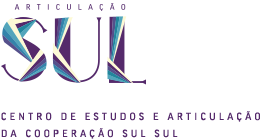The rise of emerging economies, combined with the interlinked global crises, is transforming the international development cooperation (IDC) system. With the system in flux, it is timely to critically review the policies and practices that shape IDC, our visions and models of development, as well as reflect on their theoretical and empirical foundations.
Over the past decade, the Brazilian government has increasingly promoted an independent and assertive foreign policy through South-South Cooperation (SSC). Brazil has been reaching out to other developing countries to share public policy expertise and promote knowledge exchanges. Its cooperation also includes the creation of coalitions.
Many public policies, which are shared by the Brazilian government through CSS are, are the result of social dynamics and political struggles that had civil society as a key player. Brazilian civil society has developed experience and knowledge that support the pursuit of alternative development paradigms.
SSC is helping to break the monopoly of traditional donors in setting the concepts, practice and paradigms of IDC aimed at combatting global challenges such as poverty, social justice and climate change. However, even though the concept and practice of SSC is increasingly widespread there is still no consensus on its conceptual and statistical definition. This is due, amongst other factors, to the diversity of actors, a lack of systematic data and analysis about its practice and the still incipient knowledge base.
It is therefore essential to broaden and improve the discussion about international cooperation, by building an evidence base and engaging diverse perspectives. Intellectual pluralism and diversity are key ingredients of a rights-based culture and are essential for innovation. Articulação SUL hopes to contribute to the consolidation of the International Development Cooperation field in Brazil, improving the linkages between policy research, advocacy and practice.
Motivations and principles
We see IDC not only as a field of action but, also, as a dynamic space of political debate. The current transnational crisis strengthens the need to expand and diversify the debate to look for solutions and global efforts that can build more just, equal and sustainable societies. We believe Brazil can have an international engagement that contributes to tacking global challenges and to establishing a more just and diverse international system. We are committed to the following principles:
- Independent, critical, rigorous and innovative research and analysis
- Building horizontal partnerships and movements for change
- Promoting transparency and accountability
- Promoting mutual learning and epistemological pluralism
- Promoting human rights and social justice through democratic and sustainable change

